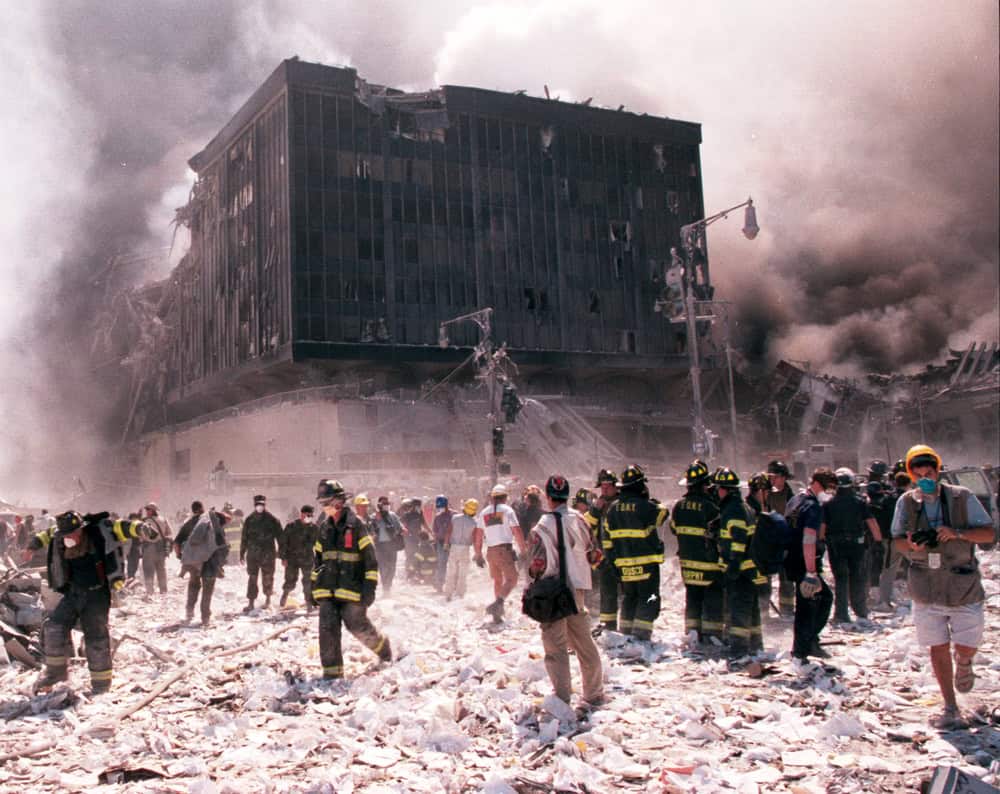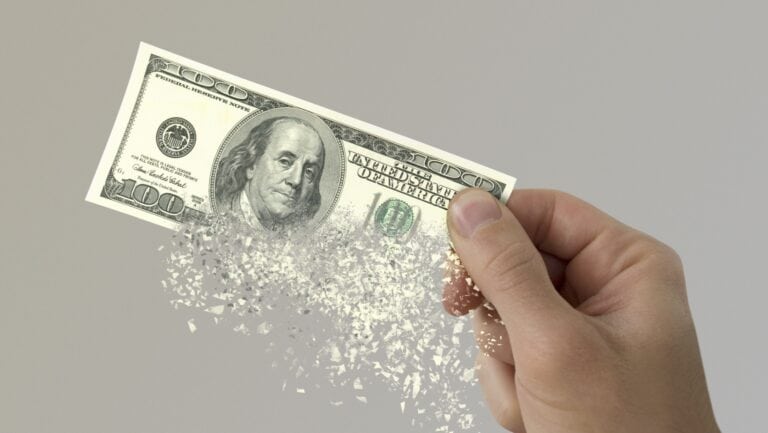24 Years After 9/11, An Unseen Battle Continues
More people have now died from 9/11-related illnesses than were killed on the day of the attacks.
Twenty-four years have passed since the tragic events of September 11, 2001. Yet the repercussions linger, not only in memory but in the daily struggles of survivors, first responders, and the residents of lower Manhattan. Today, more lives have been claimed by related illnesses than on that fateful day itself.
A Toxic Legacy: Invisible Dangers in the Air

Editorial credit: Anthony Correia / Shutterstock.com
When the Twin Towers collapsed, they released a massive cloud of debris: pulverized concrete, glass fibers, asbestos, heavy metals, and carcinogens such as dioxins and PAHs (polycyclic aromatic hydrocarbons), turning lower Manhattan into a dangerous toxin soup. Studies estimate the dust contained as much as 50% non-fibrous construction debris, 40% glass and fibers, and nearly 1% highly toxic asbestos, along with significant amounts of lead, mercury, and silica.
In the immediate aftermath, nearly half of nearby residents surveyed, within just one month of 9/11, reported irritation in their nose, throat, or eyes.
An Epidemic of Respiratory and Digestive Illnesses
Long-term monitoring via the World Trade Center Health Program (WTCHP) reveals that the most common ongoing medical conditions among participants are not cancer or PTSD, but rather, chronic rhinosinusitis and GERD. With over 33,000 cases of persistent sinus inflammation and more than 29,000 cases of GERD, these conditions remain prevalent among survivors and responders.
You may want to read: How To Manage GERD, Acid Reflux or Heartburn Symptoms
Cancers: A Slow, Silent Surge
Cancer is insidious, often taking years or decades to manifest. Though less frequent than digestive or respiratory conditions, the mortality linked to cancer is staggering. Among WTCHP members, 1,366 have died from cancers related to 9/11 exposure, and 1,469 from respiratory or digestive disorders.
Recent research, including a meta‑analysis of three large cohorts totaling over 69,000 responders, identifies significantly elevated risks for melanoma, thyroid, prostate, and certain blood cancers like leukemia and lymphoma.
Other reports expect cancer-related illnesses to continue climbing in the years ahead, particularly given illnesses with long latency periods like mesothelioma.

The Emotional Toll: PTSD and Cognitive Impacts
Mental health repercussions have been profound. Over 19,000 individuals in the WTCHP have diagnoses of mental health issues including PTSD, depression, anxiety, panic disorder, and substance abuse, and 638 of these patients have since died.
Longitudinal studies show varied PTSD trajectories among responders. Some remain resilient, some experience delayed onset of symptoms, and others face chronic emotional distress. High-risk factors include greater exposure to trauma, trauma-related medical conditions, and pre-existing psychiatric issues. Protective factors like educational attainment and social support play key roles in long-term recovery.
Recent studies also point to long-term cognitive consequences. Among World Trade Center responders, research has found an increased incidence of mild cognitive impairment, often linked to re-experiencing trauma and neurological stress.
Human Stories: Behind the Numbers

The statistics are dizzying, but individual stories hit harder:
In 2024, the number of FDNY first responders who have died from Ground Zero-related illnesses—370—surpassed those who died on the day of the attacks (343).
In just the past year alone, 28 additional FDNY members succumbed to 9/11-related diseases. Lt. Jim Brosi recounted the heartbreaking case of a young, active firefighter who was healthy just months prior and passed away within a year of his cancer diagnosis.
Musician Marya Columbia volunteered to play for responders near Ground Zero. In 2019, she was diagnosed with cancer believed to stem from the toxic environment she helped combat with music. Her story is a poignant reminder of the silent casualties among volunteers.
Advocacy, Compensation, and Ongoing Needs
Federal action has not been swift. The James Zadroga 9/11 Health and Compensation Act was only enacted in 2010, nearly a decade after the attacks, and established both the WTCHP and reopened the Victim Compensation Fund (VCF).
While it provides ongoing health monitoring and treatment through 2090, the program faces serious funding threats. Without securing sustained financial support, it may be forced to turn away new applicants by 2028.
Looking Ahead: Aging Heroes, Rising Costs
As responders age, their healthcare needs evolve, and the costs are rising, particularly with advancements in cancer treatments. Without increased, inflation-adjusted funding, programs like the WTCHP cannot meet demand.
Remember the Past. Act for the Future
More than two decades after that horrific day, the true casualties continue to emerge; one cough, one strained mind, one cancer diagnosis at a time. The fight isn’t only about memory; it’s about justice, healthcare, and ensuring that those who answered a call for help do not pay the ultimate price in slow, invisible suffering.







